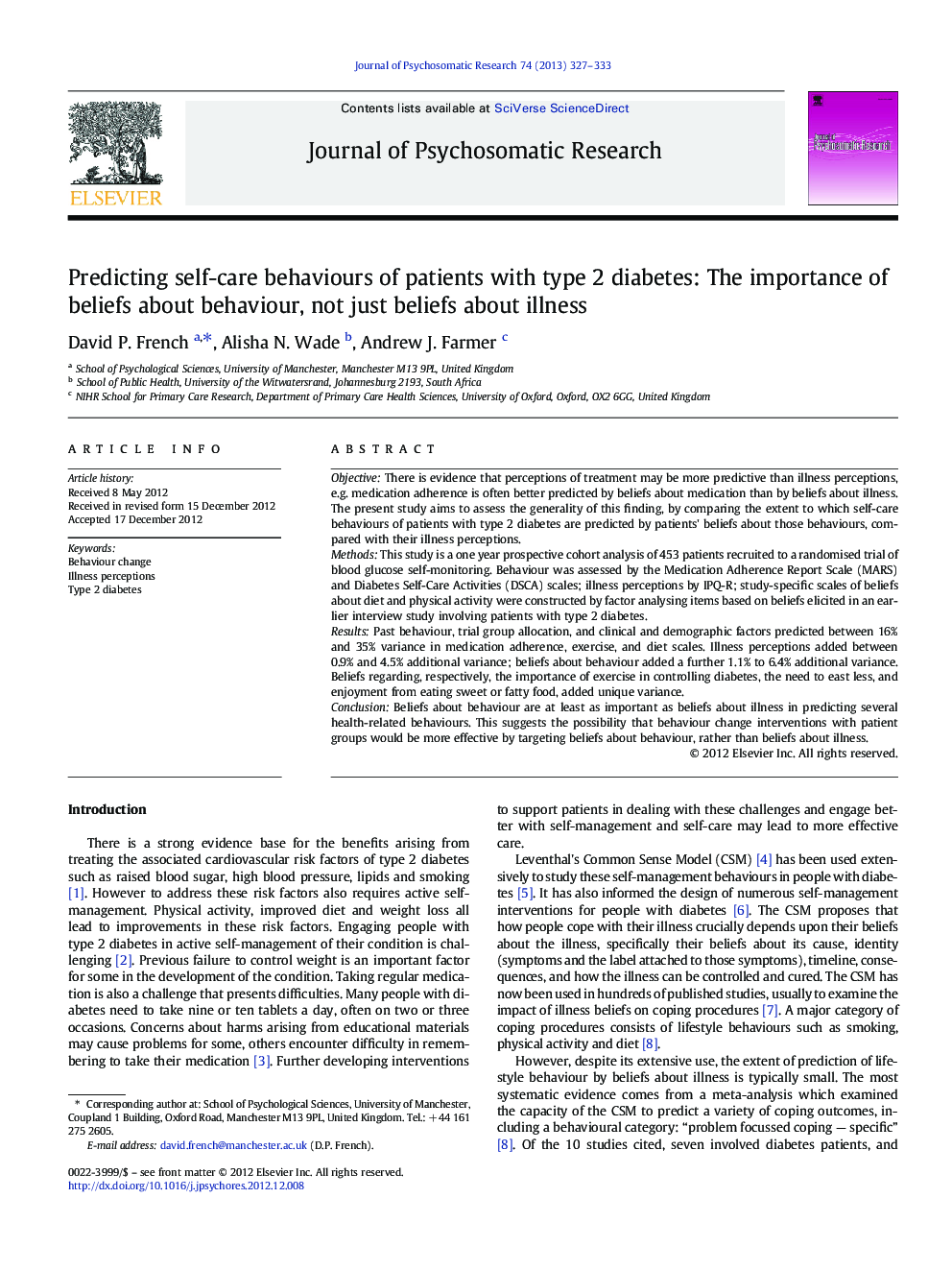| کد مقاله | کد نشریه | سال انتشار | مقاله انگلیسی | نسخه تمام متن |
|---|---|---|---|---|
| 949536 | 926763 | 2013 | 7 صفحه PDF | دانلود رایگان |

ObjectiveThere is evidence that perceptions of treatment may be more predictive than illness perceptions, e.g. medication adherence is often better predicted by beliefs about medication than by beliefs about illness. The present study aims to assess the generality of this finding, by comparing the extent to which self-care behaviours of patients with type 2 diabetes are predicted by patients' beliefs about those behaviours, compared with their illness perceptions.MethodsThis study is a one year prospective cohort analysis of 453 patients recruited to a randomised trial of blood glucose self-monitoring. Behaviour was assessed by the Medication Adherence Report Scale (MARS) and Diabetes Self-Care Activities (DSCA) scales; illness perceptions by IPQ-R; study-specific scales of beliefs about diet and physical activity were constructed by factor analysing items based on beliefs elicited in an earlier interview study involving patients with type 2 diabetes.ResultsPast behaviour, trial group allocation, and clinical and demographic factors predicted between 16% and 35% variance in medication adherence, exercise, and diet scales. Illness perceptions added between 0.9% and 4.5% additional variance; beliefs about behaviour added a further 1.1% to 6.4% additional variance. Beliefs regarding, respectively, the importance of exercise in controlling diabetes, the need to east less, and enjoyment from eating sweet or fatty food, added unique variance.ConclusionBeliefs about behaviour are at least as important as beliefs about illness in predicting several health-related behaviours. This suggests the possibility that behaviour change interventions with patient groups would be more effective by targeting beliefs about behaviour, rather than beliefs about illness.
Journal: Journal of Psychosomatic Research - Volume 74, Issue 4, April 2013, Pages 327–333